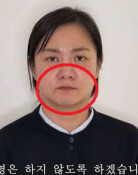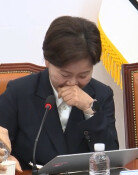U.S. Oil Giant Succumbs to Nigerian Women Protestors
U.S. Oil Giant Succumbs to Nigerian Women Protestors
Posted July. 19, 2002 22:16,
Nigerian women have claimed a victory against a giant multinational. Hundreds of Nigerian women, who had occupied U.S.-based oil giant Chevron Texas Escravos facility located in southern Nigeria since July 8, agreed to end the siege after 10 days-long negotiations. The women protesters had been calling for broader employment opportunities, peoples welfare and environment-friendly corporate activities.
And the success of the Escravos occupation prompted similar protests by women across the African nation who captured other Chevron Texaco oil facilities located in Abiyete and Macavara.
* Breakout
About 150 women living in Escravos stormed the oil production facility with kitchen utensils in their hands. They trapped some 700 workers inside the facility, blocking the gas plant, dock and helicopter pad. And they demanded that the company give more jobs, invest in the area and take measures to protect the environment.
The oil giant, which explores oil fields, drill and transport oil in the region, has hired only about 15 villagers while bringing in some 1,000 American, British and Canadian workers. This turned the oil-rich province into one of the poorest places in Nigeria. They have also failed to take due measures to ease environmental damage caused by drilling.
The group of female protesters who soon grew to about 600 in number talked with company executives dispatched from the U.S. headquarters, who after days of negotiations, agreed to hire at least 25 residents for the next 5 years. They also agreed to build schools, clinics, town halls, electricity and water systems in villages.
* First All-Women Protest
This is the first time that an all-women protest took place in the oil-rich Nigeria, where men frequently resort to kidnapping to demand jobs and money. The Escravos protestors, however, were mostly wives and mothers in their 40s who demanded the company give jobs to their husbands and sons.
During the siege, they even threatened to strip themselves naked when the company tried to break in. As they resorted to the extreme means womens taking off their clothes was considered a traditional shameful gesture in Nigeria, the company began negotiations in earnest on July 16.
We have been living in an inhumane environment, said Anunu Uwawah, a protest leader. But now we know that women also can do something to make a better life.
We now have a different philosophy and that is to do more with communities, said Nick Filgate, an executive at Chevron Texas.
Mi-Kyung Jung mickey@donga.com







